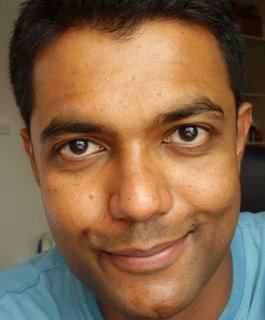Re-search? Pardon my French
My initial view was that it was because the process somewhere involved searching anew. Some clever person had, before us, come up with something clever – and we, in our quest for cleverness, were investigating it afresh in the hope of:
- proving the said clever person wrong
- scrounging for something the said clever person had overlooked so we could present it as our own
- adapting the said clever person's work to suit new demands
That all sounded very nice and strong and I was quite pleased with the reasoning for some time. Especially since dictionaries broke the word down as re + search, the former a prefix found in loanwords from Latin meaning 'again' and the latter meaning, well, 'search'.
Trouble was, did this not imply research was re search? Did it not suggest everything we do today is treading the trodden path, ergo, unoriginal?
Surely, there's enough original work?
Surely, there are searches going on?
While Oxford, Merriam-Webster, and the ever-dependable Wikipedia defined research as what we commonly take it to mean ("a course of critical or scientific inquiry", "careful or diligent search", "active, diligent, and systematic process of inquiry aimed at discovering, interpreting, and revising facts", in that order), they were content to leave where the re bit fit in unexplained. So I turned to the net, and here are three academic definitions, shamelessly lifted from Introduction to Social Work Research, a presentation by Dr Osei Dwarka of the University of Illinois:
- ...careful and systematic study in some field of knowledge, undertaken to establish facts or principles (Grinnell, 1997)
- ...a systematic way of asking questions (Drew, 1980)
- ...the scientific examination (reexamination) of emphirical data collected by someone first hand, concerning the social and psychological forces operating in a situation (Monette et al, 1994).
Um, interesting. But not particularly illiminating in this instance – for, none of the definitions takes us any closer to the elusive re. This is when I came across Klaus Krippendorff's definition, in Content analysis: an introduction to its methodology (2004, p81): ...a repeated search within data for apparent patterns.
Certainly more insightful, it offers an explanation for the prefix. But it also makes me ask why. Why is it a repeated search? Why is it not just a search?
A quick look at etymology (courtesy Oxford Online, Merriam-Webster), and I get the impression – and mind, this is only the impression of someone unschooled in matters such – that it was first used by the French to probably mean what it actually means: search afresh. The Middle French word recherché, which, Merriam-Webster and Wikipedia assure me fathered our modern-day research is a compound of our old pal re and cherché (French for ‘search’, I am told). And the French, in light of the existence of an already cute word for search would not have started calling it recherché just for the heck of it. So in all likelihood, it had popped out, complete with the prefix, to mean what it means literally.
Once in vogue – I am hypothesizing here, of course – it crossed the English channel without much ado. Perhaps it was initially used in English too to mean what it means (spelt differently though, by the look of it: as first researche and later reserch). Perhaps not. What is certain is that through the 15, 16 and 1700s, the word began to acquire the meaning 'search' and 'search thoroughly'.
Thus, we had – oh, what would I have done without Oxford Online? – quotes such as I carefully avoided the habitation ... lest it should ... furnish a clue to the researches of my pursuers and Our most profound researches are frequently nothing better than guessing at the causes of the phenomena. And by the time Jane Eyre came along with Currer Bell and Charlotte Bronte on her arm in 1847, the re had become just an appendage: She had left Thornfield Hall in the night; every research after her course had been vain.
We seem to have forgotten about that poor prefix today; most often, the word is used to mean a search for something specific.
Question now is, are people like moi – pardon my French – re-searchers?
Or are we plain searchers?
PS: Would be interesting to hear how Professor Barry Richards tackles this in his talk on October 16, What's research and why we do it. Venue, time details, to appear on this page shortly.

